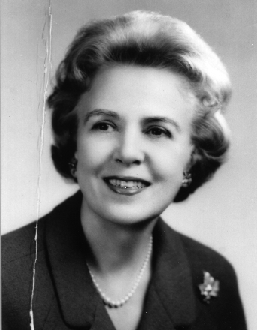Page 54
[Begin Tape 1, Side A]
Currie: Good morning, for the final audio interview. The reason I was so anxious to turn on the tape recorder is that you were talking, before we got on the tape, about some of the process that you went through when you wrote for Electronics magazine. You said that you wrote a column called "Feedback."
Montgomery: Yes. I wrote a fairly long article on a subject called feedback. My editor said, "It doesn't sound like you thinkófeedback. But it's a name that is well known to readers in this magazine, so just take it at that and get the information we want." So that went on for several months. Then he told me that they were getting the magazine to the public at a longer stretch of time than had been when we started, so that some of the material that looked like hot news was now too late. So he said, "I think we'll have to stop that and take on longer articles with your contributions often embodied in an engineer's story." That meant that I would send by teletype news items, or I could also put in what I might have gathered from an electronic engineer. However it came, this would go by teletype and frequently it would be embodied into the article that an electronic engineer on the staff was writing.
By contrast, Textile World, I liked very much because I could say and write something that was more satisfactory in its length and its reporting than I could in Electronics. My Textile World articles were several pages in length and often featured as the lead article. This wasn't always true. If it was a news item and not of any great length, I could write it myself. Where it involved any electronic technical language is when this other took place. After the war, there were plenty of electronic articles when electronics was declassified, so much of it.
Currie: You had said before we went on the tape that the New York editor had said to you, "We may take your reporting, but often we have to put it in a more technical language for this publication." Is that essentially it?
Montgomery: Yes. "We'll take your reporting, but we have to put it in a more technical language."
Currie: Also I think there were a couple of other stories that you did that maybe we'd like to talk about.
Montgomery: I was present at the first public broadcast of color TV. This was held at the National Guard Armory in Washington. In order to watch experimental tests from Washington to Baltimore, a pharmaceutical company was seeking permission from the Federal Communications Commission to broadcast a Johns Hopkins operation to an American Medical Association meeting in Washington. The press was limited to a number who would be interested in this.
Currie: What impressed you about this particular story?
Montgomery: Well, what impressed me about it was that progress, as you might call it, was made only to a rather limited degree because there was a lot of distortion in the reception that we had. It was the forerunner of something much better, and as the forerunner, it was important.
Currie: It sounds like you covered a lot of stories like that.

